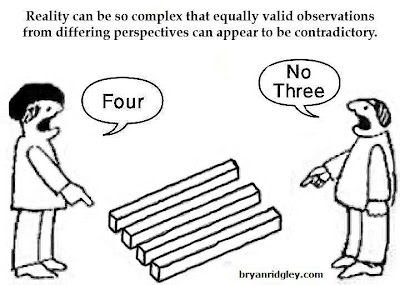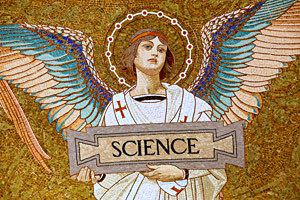MANY scientists like to think that science already understands the ways of the natural world.
For them the fundamental questions are answered, leaving only the details to be filled in.
The numerous impressive achievements of modern science seem to support this confident attitude.
But in recent research, including his own studies, frontier biologist Rupert Sheldrake believes otherwise.
His experiments reveal jaw dropping problems at the heart of physics, cosmology, biology, medicine and psychology. Similar to H. P. Blavatsky’s complaints about 19th century modern science. Not much has changed since then, it would appear. Science still refuses to acknowledge “the soul of things.”
See: Connecting the Worlds of Science and Spirituality

Resolutely dismissive of paranormal findings or brain-free consciousness, traditional science asserts that matter is the gold standard. But even great authorities especially in modern science may be found to err, and scientific dicta are frequently influenced more by personal prejudice than rigorous research.
A pure impartial science always weighs “the laboriously acquired knowledge of the senses with the intuitive omniscience of the Spiritual divine Soul,” said H. P. Blavatsky, world Theosophy teacher.

As Hermes believed so does Theosophy, she wrote in The Secret Doctrine 1:296, that “knowledge differs from sense which is only of the physical world — but Knowledge is the end of sense which is only the illusion of our physical brain and its intellect.”
It is “self-contradictory, and simply absurd — from a scientific point of view, as much and even more than from the occult aspect of the esoteric knowledge.”
When the high priests of material science, she wrote, “resolve consciousness into a secretion from the grey matter of the brain, and everything else in nature into a mode of motion, we protest against the doctrine as being un-philosophical.” [And unscientific]
In a formal, conclusive and hilarious experiment he calls “Telephone Telepathy,” Rupert Sheldrake demonstrates that consciousness can indeed fly away on its own from one mind into another!
Telephone Telepathy
The Soul of Things
In her article“Is Theosophy a Religion” H. P. Blavatsky wrote that “Practical Theosophy is not one Science, but embraces every science in life, moral and physical.” And in The Secret Doctrine (1:269) he notes “it is clear that modern science believes not in the ‘soul of things.”
“Science will be driven out of their position, not by spiritual, theosophical, or any other physical or even mental phenomena,” she writes,
but simply by the enormous gaps and chasms that open daily — and will still be opening before them.”
“One discovery follows the other,” Blavatsky affirmed, “until they are finally knocked off their feet by the ninth wave of simple common sense.”

The Inquisition
“If science is too ahead of its time it, she wrote, “it must bide its time until the minds of men are ripe for its reception. Every science, every creed has had its martyrs.”
Biologist Rupert Sheldrake is such a modern day martyr, an author of more than 80 scientific papers and 10 books, including Science Set Free. For more information on Dr. Sheldrake go to his website: http://www.sheldrake.org
Thunderbolts Project has uploaded Rupert Sheldrake’s talk at EU 2013 —”Science Set Free.” This is Part 2 of a talk by Rupert Sheldrake at the Albuquerque, New Mexico 2013 Electric Universe conference The Tipping Point. The title of the 6th annual 2017 Conference is “Future Science” and is being held in Phoenix, Arizona, August 17-20.
Scientism
Students of The Secret Doctrine know how often H. P. Blavatsky insists on the need for recognizing the Noumenon behind Phenomena. She explains the Noumenon as the conscious cause of the phenomenon, understanding without mediation of the senses, i.e. Intuition.
Theosophists also use the word “reality” in a relative sense, as in (Secret Doctrine 1:39) where Blavatsky wrote, as in a mirror image, things may be relatively real to the viewer.

Relatively real as phenomena which reflect from the material plane; yet they may themselves be unreal relatively to a higher plane, i.e. the living person. In other words, the Noumenon on one plane may be regarded as a Phenomenon relatively to a higher plane.
“I read a lot of Theosophy material while a teenager, looking for reconciliations between science and religion,” says Dr. Charles Tart, one of the founders of modern parapsychology. Her he describes the destructive effects of “Scientism.”
Keep the Spirit
“According to the ordinary course of affairs, a few generations pass away, and then there comes a period when these very truths are looked upon as commonplace facts. And a little later there comes another period in which
they are declared to be necessary, and even the dullest intellect wonders how they could ever have been denied.”
Where the conclusions of modern Science are grounded on “unassailable facts,” Blavatsky wrote (SD 1:147), “there can be no possible conflict between the teachings of occult and so-called exact Science.
“It is only when the enthusiasts of Science over-steps the limits of observation nature forcibly removing Spirit from the universe, and attribute all to blind matter,” she says, “that the Occultists claim the right to dispute and call in question their theories.”

See: Connecting the Worlds of Science and Spirituality







Nice. Don’t forget Donald, neuroscientist at UC Irvine.
Watch “Dr Donald Hoffman on Idealism” on YouTube
LikeLike
Thanks. The Donald reasons well, but still using the very terms he ultimately argues against, i.e. time and consciousness. I also like HPB’s consciousness argument:
To know itself or oneself, necessitates consciousness and perception (both limited faculties in relation to any subject except Parabrahm), to be cognized. Hence the “Eternal Breath which knows itself not.” Infinity cannot comprehend Finiteness. The Boundless can have no relation to the bounded and the conditioned. In the occult teachings, the Unknown and the Unknowable mover, or the Self-Existing, is the absolute divine Essence. And thus being Absolute Consciousness, and Absolute Motion — to the limited senses of those who describe this indescribable — it is unconsciousness and immoveableness. Concrete consciousness cannot be predicated of abstract Consciousness, any more than the quality wet can be predicated of water — wetness being its own attribute and the cause of the wet quality in other things. Consciousness implies limitations and qualifications; something to be conscious of, and someone to be conscious of it. But Absolute Consciousness contains the cognizer, the thing cognized and the cognition, all three in itself and all three one. No man is conscious of more than that portion of his knowledge that happens to have been recalled to his mind at any particular time, yet such is the poverty of language that we have no term to distinguish the knowledge not actively thought of, from knowledge we are unable to recall to memory. To forget is synonymous with not to remember. How much greater must be the difficulty of finding terms to describe, and to distinguish between, abstract metaphysical facts or differences. It must not be forgotten, also, that we give names to things according to the appearances they assume for ourselves. We call absolute consciousness “unconsciousness,” because it seems to us that it must necessarily be so, just as we call the Absolute, “Darkness,” because to our finite understanding it appears quite impenetrable, yet we recognize fully that our perception of such things does not do them justice. We involuntarily distinguish in our minds, for instance, between unconscious absolute consciousness, and unconsciousness, by secretly endowing the former with some indefinite quality that corresponds, on a higher plane than our thoughts can reach, with what we know as consciousness in ourselves. But this is not any kind of consciousness that we can manage to distinguish from what appears to us as unconsciousness.
(The Secret Doctrine 1:56)
LikeLike